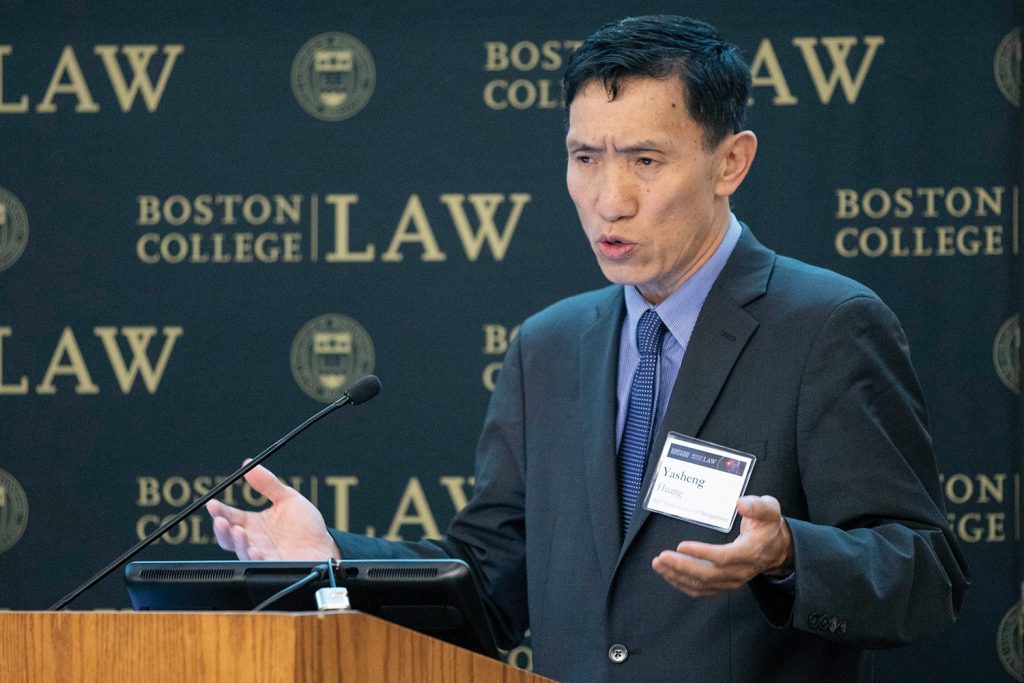At the second annual International IP Summit at BC Law, which focused this year on China, keynote speaker Yasheng Huang said that evaluating intellectual property rights in laws and enforcement in China requires an understanding of Chinese history and culture. Historically, “the very idea of rights did not exist in the Chinese political culture,” Huang explained. “So how do you establish a subset of rights, such as property rights and IP?”
Photograph above: International IP Summit keynote speaker Yasheng Huang.
The Epoch Foundation Professor of International Management at the MIT Sloan School of Management, Huang spoke on the first day of the two-day conference October 17-18, which was sponsored by BC Law’s Program on Innovation and Entrepreneurship (PIE), Ropes & Gray, and the Boston Patent Law Association. It drew a large gathering of international legal, business, and government experts.
Huang made a case that cooperation, not conflict, is the key to the future of a global marketplace. When working with China, that means looking past the current trade war to understand the rapidly evolving regulatory, intellectual property, and privacy landscape in its burgeoning economy. A trade war harms both the US and China and will have “substantial long-term damaging impact on both countries,” he said. “The US needs a smarter way of dealing with the challenge of China.” Huang suggested a long-term strategy to separate out and negotiate the various issues.
Not everyone at the conference agreed. A following panel on US/China IP and Trade Policy Trends featured a sometimes spirited debate about confrontation versus collaboration in dealing with IP issues in China. Other panels discussed brand rights and acquisitions, including the sticky problems of copyright and trademark enforcement; trade policy reforms and trends; developments in cross-border IP protection; and the regulatory landscape for life sciences in China, among other topics.



